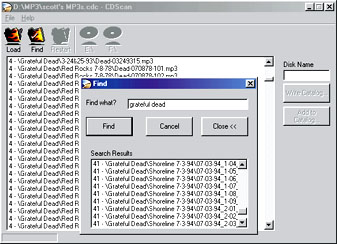|
|
|
Q: I read WITH interest the item about Pretty Good Privacy in the February column. Some months ago I downloaded, installed, and began using PGP. I even uploaded my public key to one of the PGP keyservers so other PGP users could verify my messages and send me encrypted mail. Then I switched computers and lost track of my PGP key files. I reinstalled PGP and created a new set of public and personal keys, but I can't remove my old (and now useless) public key from the public keyservers. I don't recall my old passphrase and don't have the old keyset. How can I remove the old key from the keyserver? Edward J. Czilli A: The short answer is, you can't. Not that it's a terrible tragedy. As you note, you can create a new certificate. If someone looks up your old key on the server and uses it to send you an encrypted message, you'll just have to send them an explanatory note together with a pointer to your new public key. It's important to keep a backup copy of your private key and to choose a passphrase you're sure to remember (or store it somewhere you'll be sure to find it). You can create and store revocation certificates in advance to remove your public key from the server without requiring a passphrase. Should you need to create a new pair of keys, you can easily retire the public part of the old one from keyservers. Index CDs Quickly With CDScanFirst you found the Internet, then you got yourself a cable modem and a CD burner. Now you're the proud owner of about 100 CD-Recordable discs with MP3 files, digital video, downloaded software, and the rest of the digital smorgasbord. But how do you know which disc a file is stored on? I tried to solve this problem by writing a batch file that would snag a CD's directory listing and append it to a text file. I soon gave up on the laborious task, however. Fortunately, Mike Monti's free CDScan utility does perfectly what I need it to do. Insert a disc, enter a disc name, click the utility's Scan button, and CDScan adds the disc's directory listing to your database. You can search for a particular file name, song title, or artist, or just find out what's on disc number 37. Download the 2.2MB program from our cover CD or from Mike's site at home.mminternet.com/~mmonti/CDScan.htm. The current version of CDScan doesn't let you print out a particular CD's directory listing, which would be great for stuffing into the jewel case.  |
Category:Internet Issue: August 2000 |
These Web pages are produced by Australian PC World © 2000 IDG Communications